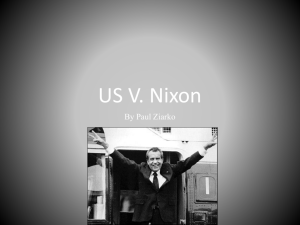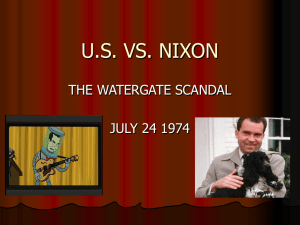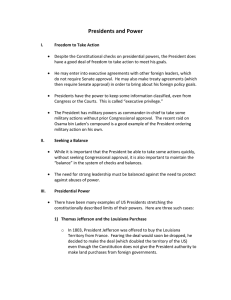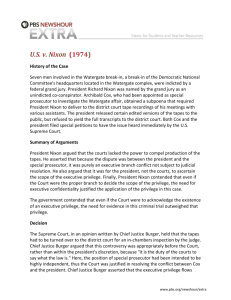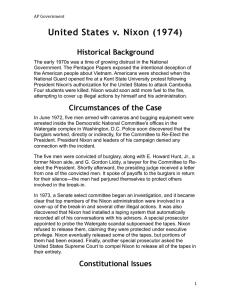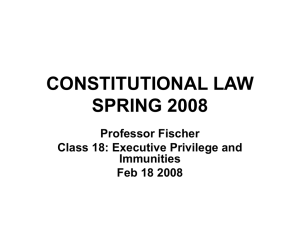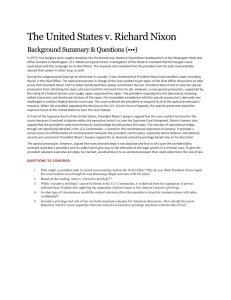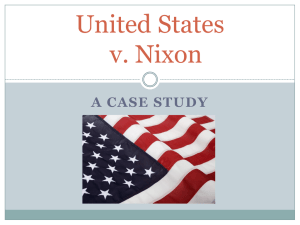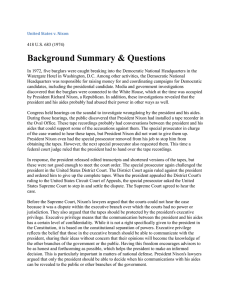United States v. Nixon
advertisement
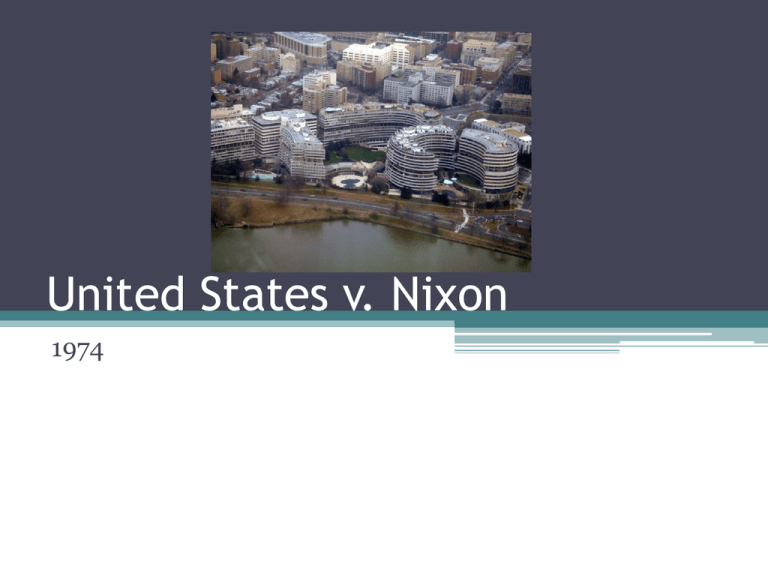
United States v. Nixon 1974 Background • Watergate Burglary June 17, 1972 • Washington Post Investigation • CREEP • Special Prosecutor ▫ Archibald Cox • Senate Watergate Committee ▫ Sam Ervin Background • Tapes ▫ Alexander Butterfield • Saturday Night Massacre Oct. 20th, 1973 ▫ Leon Jaworski • Edited Transcripts • Watergate Seven and other Coconspirators plead guilty ▫ Former Attorney General John Mitchell ▫ White House Counsel John Dean ▫ Nixon’s aides H.R. Haldman and John Elrichman ▫ Nixon’s Personal Lawyer Herbert Kalmbach Case • James St. Clair represented Nixon • Claimed Executive Privilege • Dispute within Executive branch. Did not require Judicial resolution • no proven need for the tapes in the trial Decision • Arguments heard on July 8th 1974 • Decision reached on July 24th, 1974 • 8-0 ruling to hand over the tapes • William Rehnquist did not participate due to personal reasons • Chief Justice Warren burger wrote the unanimous opinion Decision • Nixon must hand over the tapes • The Supreme court has the final voice in determining constitutional questions • While There is an Executive Privilege, the president is not above the law and can not use that privilege to withhold evidence in a criminal trial Issues and result • Addressed the matter of Executive Privilege • Reaffirmed Marbury v. Madison • 4th amendment • Nixon handed over the tapes on July 30th, 1974 • Nixon resigned 10 days later My Opinion • Agree • No person is above the law, not even the President Quotes and facts • Four of the Justices were appointed by Nixon ▫ ▫ ▫ ▫ Chief Justice Warren Burger Harry Blackmun Lewis Powell, Jr. William Rehnquist • "The President wants me to argue that he is as powerful a monarch as Louis XIV, only four years at a time, and is not subject to the processes of any court in the land except the court of impeachment.“ – James St.Clair • "Mr. St. Clair, what public interest is there in preserving secrecy with respect to a criminal conspiracy?" - Justice Lewis Powell • "Neither the doctrine of separation of powers, nor the need for confidentiality of highlevel communications, without more, can sustain an absolute, unqualified Presidential privilege of immunity from judicial process under all circumstances. The President's need for complete candor and objectivity from advisors calls for great deference from the courts. However, when the privilege depends solely on the broad, undifferentiated claim of public interest in the confidentiality of such conversations, a confrontation with other values arises."—Chief Justice Warren Burger
